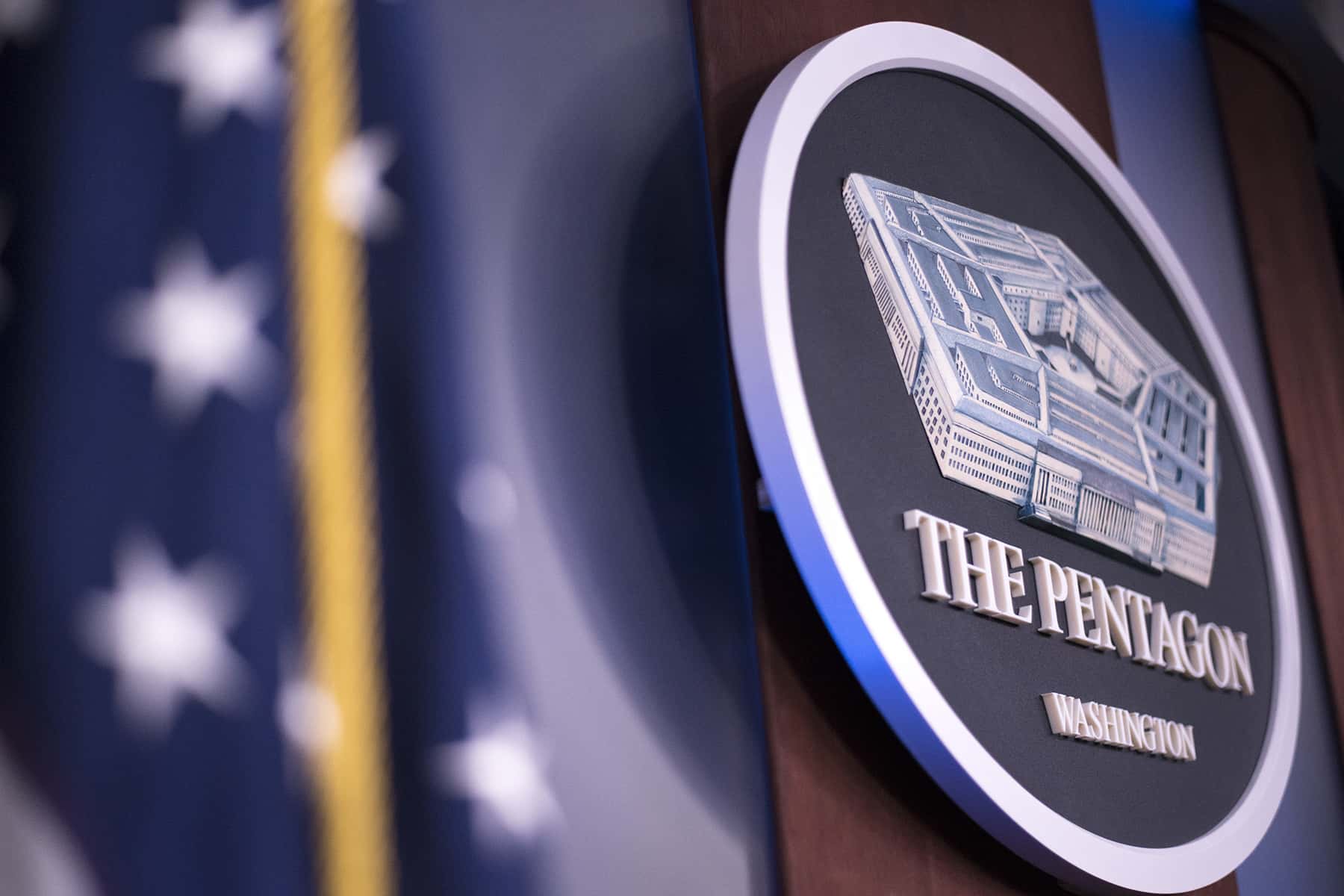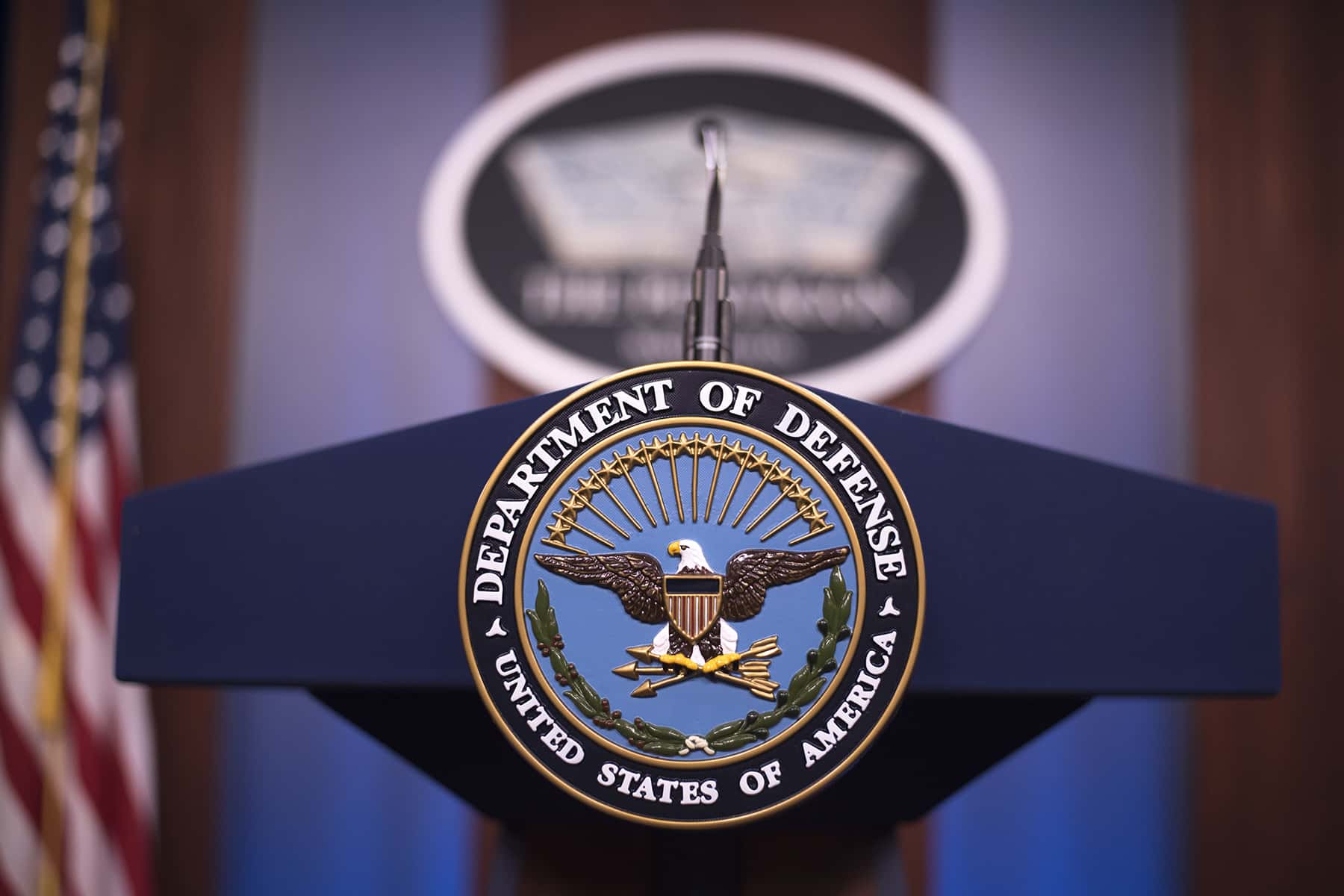
The annual approval of the gargantuan U.S. military budget is one of the most reliable rituals in Congress. It is so ordinary and overwhelmingly bipartisan, it is barely considered newsworthy, and few outlets follow the details of exactly how much the government is allocating to a nuclear weapons buildup, or deployments to the Asia Pacific, or the steady creep of U.S. military bases across the continent of Africa.
Even under President Trump, when the Democratic leadership claims to have struck a more confrontational posture, those same leaders have repeatedly handed him bloated military budgets, as we saw Wednesday with Congress’ bicameral approval of a roughly $740 billion military budget for 2021. It is really only Trump’s threats to veto the National Defense Authorization Act (NDAA), most recently over his objections to some liability protections for social media companies, that cut through the noise.
But this is no ordinary year. As Congress races to pass the NDAA for 2021, it does so in a country that is hurtling toward months that could be among “the most difficult in the public health history of this nation,” according to Dr. Robert Redfield, the director of the Centers for Disease Control and Prevention. Along with this health crisis, whose scale in the United States was entirely preventable, comes economic devastation: Lines for food banks are stretching for miles and, according to one study, one in six people is food insecure. As of September, one in six adults said they live in a house that’s behind on rent.
The nearly $3 trillion in stimulus spending so far has come from bills passed in March and April, including the CARES Act, which together combined corporate bailouts and tax breaks for the wealthy with measures that, while insufficient, provided at least some genuine relief, including expanded unemployment insurance and $1,200 checks. But without a new relief package, roughly 12 million people are poised to lose their unemployment benefits at the end of this year, and federal protections against evictions and deferment of student loan payments are also set to expire.
While there are some reports of renewed discussion of Covid relief, there has been little meaningful movement, and there’s a good chance that stalled negotiations will bring unfathomable levels of economic devastation to tens of millions of people. It is worth taking a moment to contrast this stalemate over coronavirus relief with bipartisan support for the U.S. war machine.
The United States has by far the biggest military budget on the planet, spending more than the next 10 countries combined. There is no indication that U.S. lawmakers plan to reverse this trend anytime soon: For six consecutive years the military budget has either increased or stayed roughly the same, taking inflation into account. As the National Priorities Project pointed out in June, the military budget in 2019 accounted for 53% of the federal discretionary budget.
If considering the “militarized budget” to include “veterans’ affairs, homeland security, and law enforcement and incarceration,” this number jumps to 64.5% of the federal discretionary budget. But actual U.S. spending on wars is far greater estimated to easily exceed $1 trillion per year.
Being expensive in itself is not grounds for objection: Some really good things that we desperately need are expensive, like paying people to stay home so that they can survive the pandemic. The war budget is bad because the U.S. militarism, aggression and meddling that it finances are deeply harmful — among the most harmful forces on Earth. The United States has roughly 800 military bases around the world, undermining local self-determination, emitting environmental poison and carbon emissions, and bringing increased risk of sexual assault.
The so-called “War on Terror” has turned the whole planet into a U.S. battlefield, and now the United States is planning to intensify its militarization of the Asia-Pacific region in order to escalate against China, which the current NDAA reflects, with bipartisan support. As the world suffered from the coronavirus pandemic, the United States continued its support for bombings in Yemen, ratcheted up brutal sanctions regimes, and now the Trump administration is, once again, engaging in dangerous brinkmanship with Iran, no doubt making the pandemic far worse for those caught in U.S. crosshairs.
As the pandemic was raging, Congress had no problem passing legislation to continue U.S. military violence. The Senate version of the NDAA passed on July 23 in a vote of 86 to 14, while the House version was approved July 21 by 295 to 125. This defense bill was then approved December 2 by both chambers of Congress.
To be fair, some have tried to use the pandemic to call for decreasing the military budget. In July, a proposal in both the House and the Senate to cut the military budget by 10% or $74 billion, and divert those funds to social programs, failed. The proposed cut was a small fraction of what was needed to make a dent in the harmful U.S. military apparatus. Yet, according to the National Priorities Project, even the $74 billion the proposal would have diverted could have funded 44 times as many coronavirus tests at the time, or provided housing for the over half a million homeless people in the country.
While entirely routine at this point, it is useful to highlight on the eve of yet another massive Pentagon handout how the budget for war could instead go toward life-preserving social goods. This is useful, not to buy into austerity notions of scarcity, but simply to show the profound immorality of where our public resources go. When it comes to military spending, the sky is the limit. Space Force? Sure. Roughly $21.9 billion for nuclear weapons programs? No problem. But when it comes to keeping people alive, U.S. political imagination is significantly more constrained.
Republicans and Democrats are equally to blame for the present impasse. According to Hadas Thier, “The lion’s share of responsibility for failed negotiations surely lays at the Republicans’ door, but the reality is that desperately needed economic relief is being treated as a political football on all sides.”
We should not allow bipartisan agreement on military spending to simply fade into the background, as an unremarkable and immutable fact of U.S. politics. That we can find the money for war but not for coronavirus relief exposes the moral rot at the center of U.S. politics, a rot that must be dug out and expunged if we are to get through this crisis.
Sаrаh Lаzаrе
The White House
Originally published on Common Dreams as Congress Is Deadlocked on Covid Relief But Came Together to Fund the Pentagon for $740 Billion














